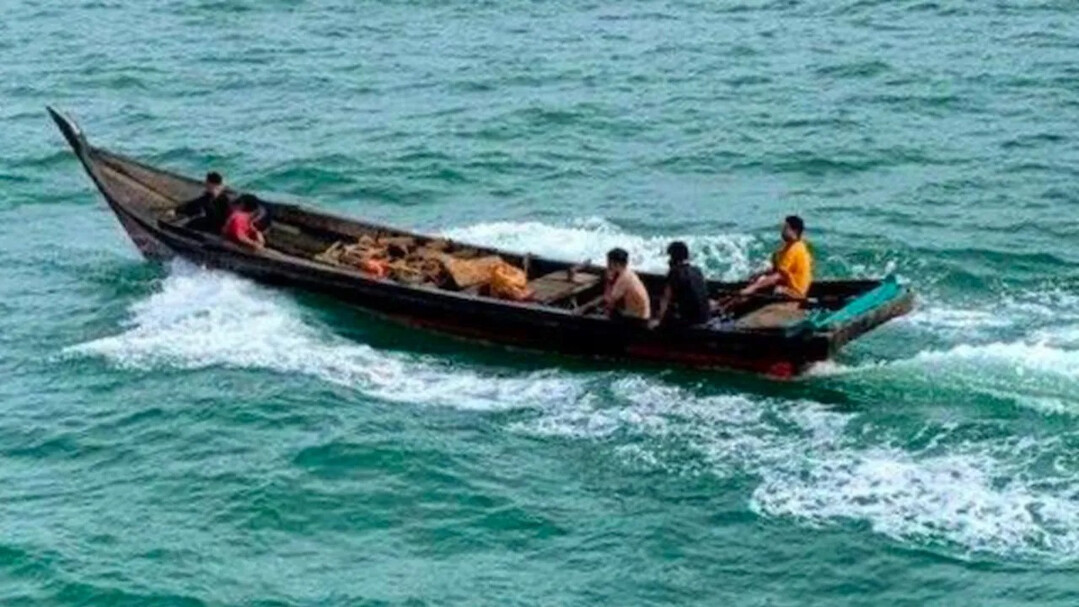
Concerns about maritime security in Asian waters are mounting in the second quarter of 2025. In particular, a sharp increase in boarding incidents in the Singapore Strait has elevated maritime robbery as a major maritime security threat in Southeast Asia. Despite ongoing geopolitical tensions across the South China Sea, the most pressing current issues are piracy, armed robbery, and theft.
Singapore Strait Emerges as a Hotbed for Maritime Robbery Incidents
According to analysis by Risk Intelligence, while maritime crime in Southeast Asia has generally seen a declining trend in theft and armed robbery incidents at ports, anchorages, and on vessels underway across most regions, the frequency of vessel boardings in the Singapore Strait continues to rise. The upward trend in vessel boarding incidents targeting cargo ships transiting the Singapore Strait, which began in Q3 2024, continued into Q2 2025, recording alarming statistics.
Compared to Q2 2024, reported boarding incidents on vessels navigating the Singapore Strait increased by 309% in Q2 2025, surging from 11 incidents in 2024 to 45 in 2025. This surpasses the 208% increase recorded in Q1. Looking at the first half of the year, the 82 incidents recorded in the Singapore Strait represent a 257% increase compared to the 23 incidents recorded in the first half of last year.
In other Southeast Asian regions outside the Singapore Strait, vessel boardings in the form of theft and armed robbery decreased. In the first half of 2024, a total of 44 incidents were reported, 21 of which occurred in waters outside the Singapore Strait. Of the 97 incidents reported in the first half of this year, only 15 occurred outside the Singapore Strait's boundaries.
While 52% of reported incidents in Southeast Asia in H1 2024 occurred in the Singapore Strait, this figure increased to 85% in H1 2025. This indicates that while improvements are being made in other parts of the region, the situation in the Singapore Strait is deteriorating.
Since November last year, an average of 13 incidents per month have been reported in the Singapore Strait, with a steady upward trend, peaking at 19 incidents in May. This consistent upward trend differs from the cyclical patterns observed in previous years. In the past, factors such as seasonal weather, moon phases, and financial pressures related to various holidays were analyzed as influencing periodic activity levels. However, with the disappearance of these cyclical patterns, it is less likely that these factors play a significant role. Instead, attention is turning to the greater likelihood that insufficient law enforcement within Indonesian territorial waters, which overlap with the boundaries of the Singapore Strait, is a more significant contributing factor.
Recurrence of Crime Targeting Container Ships and Maritime Safety Concerns
Another concern is that thieves and armed robbers have once again begun targeting container ships transiting the Singapore Strait. As mentioned in the Q1 report, there had been no incidents involving container ships in the Singapore Strait for the past decade. However, this trend shifted with five container ship boarding incidents in Q1. In Q2, three additional container ship incidents occurred, all involving armed perpetrators.
Despite the recurrence of container ship-related incidents, the overall ranking of boarding by vessel type has not changed. Bulk carriers remain the most affected vessel type, accounting for 58% of all incidents with 26 boarding incidents in Q2. Tankers accounted for 24% of the total with 11 boardings, followed by barges with 4 incidents, and container ships with 3. While offshore drilling rigs were not targeted in Q2, there was one incident involving a general cargo ship.
With perpetrators frequently boarding vessels armed with weapons such as knives and airsoft guns, concerns about the safety and well-being of seafarers are growing. To protect crew members, some shipping companies have installed razor wire at the stern of vessels underway. While this can certainly act as a deterrent, in at least one instance, perpetrators attempted to cut through the razor wire to gain entry to the vessel.
While the increasing trend of theft and armed robbery in the Singapore Strait is worrying, it is encouraging that there have been no crew kidnappings in the broader region since 2020, and no cargo ship kidnappings since 2017, excluding tugboats and fuel barges. Nevertheless, uncontrolled criminal activity could potentially escalate, posing a higher threat to the safety and well-being of seafarers.
Persistent Geopolitical Tensions in the South China Sea
From a geopolitical perspective, Q2 also saw continued inter-state provocations in the South China Sea. Some were related to underwater activities. China strongly opposed seabed exploration activities conducted by the United States in the South China Sea, claiming that such actions were a challenge to its territorial claims and a potential threat to its military activities. This Chinese opposition came while China was conducting seabed exploration operations within Vietnam's exclusive economic zone (EEZ). Vietnam remained silent regarding this activity.
Regular naval exercises continued in the South China Sea. These took place against a backdrop of diplomatic movements in the region, some of which were intensified by US tariffs affecting all Asian nations. These US moves were interpreted as bringing already close relations between countries like China and Indonesia even closer. Chinese Premier Li Qiang's visit to Jakarta in May included the implementation of over $10 billion in Chinese investments and strengthened trade relations.
In the same month, China and Cambodia conducted "Operation Golden Dragon," simulating a joint rescue operation to save cargo ship crew members hijacked by terrorists. Like the numerous naval exercises continuously conducted by navies in the region, these did not impede the innocent passage of cargo ships.
[Copyright (c) Global Economic Times. All Rights Reserved.]






























